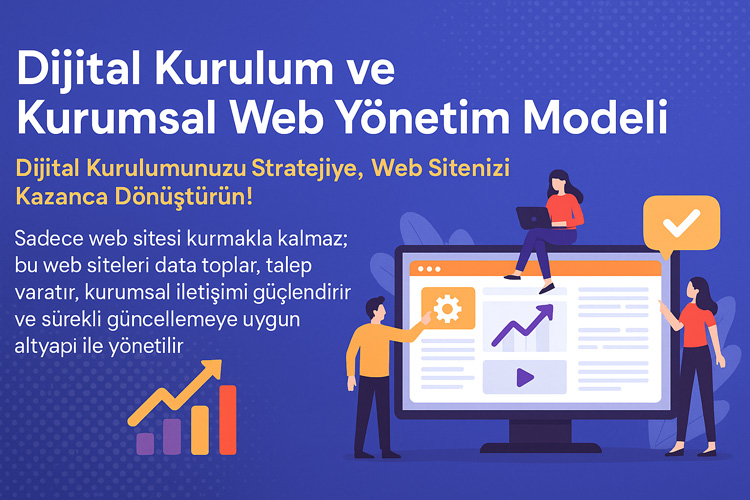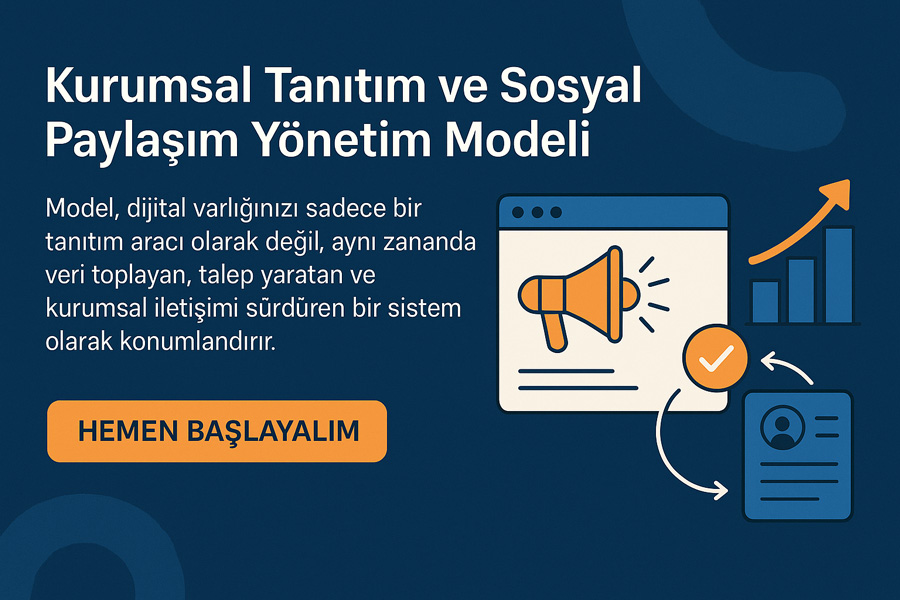PESTEL analysis is a comprehensive tool that helps companies understand their external environment and shape their strategic decisions accordingly. This analysis, which includes Political, Economic, Social, Technological, Environmental and Legal factors, allows companies to develop effective strategies to increase their performance.
First, political factors can directly affect companies’ activities. Factors such as laws, regulations, government policies and political stability shape companies’ operations and strategies. For example, government incentive policies or tax regulations may influence companies’ investment decisions. Therefore, constantly monitoring the political environment and being able to quickly adapt to these changes plays a critical role in increasing company performance.
Economic factors are important factors that directly affect the financial performance of companies. Indicators such as inflation, interest rates, exchange rates and economic growth rates determine the profitability and financial sustainability of companies. For example, high inflation rates can increase costs, narrowing profit margins. Therefore, following economic indicators closely and shaping financial strategies accordingly is of great importance in optimizing company performance.

Social factors include elements such as consumer behavior, demographic changes and cultural trends. Understanding consumer demands and expectations plays a critical role in determining effective marketing strategies. For example, the increasing demand for sustainable products requires companies to develop environmentally friendly production and marketing strategies. Closely monitoring such social trends and adapting strategies accordingly helps companies gain a competitive advantage.
Technological factors include innovation and digitalization processes. Following technological developments closely and integrating these innovations into business processes increases the efficiency and competitiveness of companies. For example, artificial intelligence and automation technologies can reduce costs and improve customer experience by increasing operational efficiency. Therefore, adopting technological innovations and integrating them into business processes is an important strategy to increase company performance.
Environmental factors include sustainability and environmentally friendly practices. Climate change, natural resource depletion and environmental regulations affect companies’ operations and strategies. Companies that fulfill environmental responsibilities and act in accordance with sustainability principles both increase their reputation and avoid legal risks. Therefore, developing strategies taking environmental factors into account positively affects company performance.
Finally, legal factors refers to legal regulations and regulations. It is critical for companies to ensure legal compliance and minimize legal risks for operational continuity and reputation. Following and complying with legal requirements ensures the long-term success of companies.
Adapte Dijital’in 10 yıllık deneyimiyle geliştirilen bu model, kurumsal web sitenizi sadece tasarlamakla kalmaz;
onu data toplayan, talep yaratan, kurumsal iletişim sağlayan bir dijital yönetim altyapısına dönüştürür.
Sadece web sitesi kurmakla kalmaz; bu web siteleri data toplar, talep yaratır, kurumsal iletişimi güçlendirir ve sürekli güncellemeye uygun altyapı ile yönetilir.
🌟 PESTEL analysis systematically evaluates these factors, helping companies understand their external environment and shape their strategic decisions accordingly. This analysis is an effective tool in improving company performance and is the key to long-term success.

İçindekiler
ToggleThe Effect of Political Factors on Company Performance and Management Strategies
The success of companies depends not only on their internal dynamics but also on external environmental factors. Political factors are among these external environmental elements and can significantly affect company performance. The variability of the political environment, laws, government policies and regulations are factors that directly affect companies’ operations and strategic decisions.
Legal and Regulatory Changes are one of the important political factors that companies must adapt to. Governments can enact various laws and regulations to achieve their economic and social goals. These regulations may be in areas such as tax policies, labor laws, environmental protection regulations and trade policies. For example, a new environmental law may require changes to production processes, which can increase costs and affect the company’s profitability.
Political Stability and Uncertainty is a critical factor affecting companies’ long-term plans. Political stability increases investor confidence and supports economic growth. However, political uncertainty and instability can negatively affect markets and complicate companies’ investment decisions. Particularly in developing countries, government changes and political turmoil can make the business environment uncertain. Such situations require companies to strengthen their risk management strategies and be flexible.
Subsidies and Incentives are tools that governments use to support certain sectors. These subsidies and incentives can reduce companies’ costs and provide a competitive advantage. For example, incentives given to the renewable energy sector can support the growth of companies operating in this field. Taking advantage of such opportunities should have an important place in companies’ strategic plans.
Lobbying Activities and Political Interaction is one of the methods used by companies to protect and support their interests. By communicating directly with government officials and policymakers, companies can try to ensure that laws and regulations are in their favor. Such activities can be an important strategy, especially for large and influential companies. However, it is critical that lobbying activities remain within ethical and legal limits in order to protect the company’s reputation.
Since political factors have a great impact on company performance, it is vital to develop management strategies that take these factors into consideration. Companies must constantly monitor the political environment, adapt quickly to changes and strengthen risk management strategies. Additionally, taking advantage of government incentives and conducting lobbying activities within ethical boundaries can increase companies’ competitive advantage.
Adapte Dijital’in 10 yıllık deneyimiyle geliştirilen bu model, kurumsal web sitenizi kurumunuzu/markanızı anlatan, tanıtan, güven yaratan, talep oluşturan bir dijital yönetim platformuna dönüştürür.
Adapte Dijital, bu modelde bir konumlandırma ajansı olarak çalışır. Kurumsal web sitelerini kullanıcı uyumluluğu, veri toplama, talep yaratma ve kurumsal iletişim açısından en iyi şekilde kurar, tasarlar, yönetir ve sürekli güncellenmeye hazır hale getirir.
Risk Management Strategies for Political Factors
The impact of political factors on companies makes risk management strategies inevitable. Risk management is a critical tool for companies to cope with political uncertainties. These strategies enable companies to be more resilient to political risks and maintain operational continuity.
First, the political environment must be constantly monitored and analyzed. Companies can be prepared for possible risks by following political changes and trends. This means understanding new government laws and regulations and evaluating the impact of these changes on business operations.
Diversification strategy is another important way to manage political risks. By diversifying the markets and product portfolios in which they operate, companies can reduce the impact of political uncertainties that may occur in a particular region or sector. For example, a company operating in different geographic regions may be able to offset the negative effects of political changes in one country with revenues from other markets.
Localization is an effective strategy in risk management. By building strong relationships with local governments and communities, companies can be more resilient to political changes. This increases the ability to comply with local regulations and respond to the needs of local people.
Finally, scenario planning and creating contingency plans enable companies to react quickly to unexpected political changes. Such plans evaluate the possible effects of various political scenarios and determine the measures to be taken in response to these scenarios. Thus, companies are prepared for sudden political changes and minimize operational disruptions.
🎯 Since political factors have a great impact on company performance, management strategies developed taking these factors into consideration guarantee the long-term success and sustainability of companies.
Analysis of Economic Indicators and Their Reflections on Business Decisions
Analysis of economic indicators is vital for businesses within the scope of PESTEL analysis. These indicators directly affect the strategic decisions and financial performance of companies. Economic indicators include inflation, interest rates, exchange rates and economic growth rates, and careful monitoring of these indicators helps companies improve their risk management strategies and opportunity assessments.
Inflation refers to the continuous increase in the general level of prices. In PESTEL analysis, high inflation rates may increase companies’ production costs and narrow their profit margins. For example, an increase in raw material costs may cause product prices to rise. In this case, customers’ purchasing power may decrease and demand may shrink. Therefore, it is of great importance to constantly monitor inflation rates and adjust pricing strategies accordingly.
Interest rates affect companies’ borrowing costs and investment decisions. Low interest rates enable companies to obtain loans and finance their investments at lower costs. However, high interest rates can increase borrowing costs, making investment decisions difficult. Within the scope of PESTEL analysis, it is important for companies to carefully manage their financial plans and budgets.
Exchange rates are a critical indicator, especially for companies that export and import. Fluctuations in exchange rates can affect the costs and revenues of companies trading internationally. An increase in the exchange rate may disrupt the cost structure of companies by increasing import costs. At the same time, exchange rate increases can provide a competitive advantage for exporting companies. Therefore, it is important to constantly monitor exchange rates and use appropriate financial instruments to manage exchange rate risks.
Economic growth rates are an important indicator of a country’s economic performance. High economic growth supports increased demand and job opportunities. This allows companies to increase sales and enter new markets. However, during periods of economic recession, demand may decrease and companies’ profitability may be negatively affected. Monitoring economic growth rates in PESTEL analysis and adjusting business strategies accordingly ensures sustainable growth of businesses.
The Effect of Inflation on Company Strategies
The impact of inflation on companies should be carefully examined within the scope of PESTEL analysis. Inflation means a constant increase in the general price level of goods and services and directly affects the cost structure of businesses. High inflation can increase companies’ production costs, narrowing their profit margins. This situation becomes especially evident in sectors where raw material and labor costs rise rapidly.
To manage the effects of inflation, companies must optimize their cost structures and carefully determine their pricing strategies. For example, a strategic approach might be to gradually increase product prices or take cost-cutting measures to offset cost increases. At the same time, investing in efficiency-enhancing technologies is important to control costs.
Investment in productivity-enhancing technologies plays a critical role in minimizing the negative effects of inflation. These technologies make production processes more efficient, reducing costs and increasing the competitiveness of companies. For example, automation systems and artificial intelligence applications can keep costs under control by speeding up business processes and reducing error rates.
🌍 During periods of high inflation, it is of great importance for companies to focus on cost control and efficiency-enhancing measures for long-term sustainability and profitability. By carefully evaluating the effects of inflation in PESTEL analysis, companies can shape their strategic plans and operational processes accordingly.
In this context, PESTEL analysis analyzes different aspects of the economy, enabling companies to be prepared for external environmental factors and to make strategic decisions in line with these analyses. Carefully monitoring and analyzing indicators such as inflation, interest rates, exchange rates and economic growth rates ensures the long-term success of companies.
Methods to Increase Your Market Share by Following Social Trends
Social trends influence the strategic decisions of businesses by shaping consumer behaviors and preferences. Examining social factors within the scope of PESTEL analysis is of critical importance to increase the market share of businesses. Monitoring and adapting to social trends helps companies gain a competitive advantage.
Consumer behavior is constantly changing. New generation consumers prefer brands that are environmentally friendly, care about ethical values and adapt to digitalization. Monitoring social trends in PESTEL analysis enables companies to develop strategies that can respond to these changing expectations. For example, increasing demand for sustainable products requires companies to switch to environmentally friendly production methods.
Digitalization and Social Media Usage is one of today’s most important social trends. Social media platforms are an effective way to communicate directly with consumers and increase brand awareness. Companies can constantly improve their products and services by following consumer feedback on social media. Monitoring digitalization trends within the scope of PESTEL analysis and integrating these trends into strategies is an important way to increase market share.
Social Responsibility and Ethical Values play an important role in consumers’ brand preferences. Consumers prefer brands that contribute to society and adhere to ethical values. Therefore, companies investing in social responsibility projects and adopting ethical business practices can increase customer loyalty. Following social responsibility trends within PESTEL analysis and developing strategies accordingly can increase the reputation and market share of companies.
Sustainability and Environmental Awareness are among the priorities of today’s consumers. Environmentally friendly products and sustainable production methods are preferred by consumers. Companies acting in accordance with the principle of environmental sustainability and offering products and services accordingly can be effective in increasing market share. Monitoring sustainability trends within the scope of PESTEL analysis and integrating these trends into strategies ensures long-term success.
The Impact of Social Media Trends on Business Strategies
Social media trends are one of the important elements that shape the marketing strategies of businesses. Social media is an effective way to communicate directly with consumers and increase brand awareness. Monitoring social media trends in PESTEL analysis and integrating these trends into strategies helps companies gain competitive advantage.
Social media platforms offer businesses the opportunity to reach a wide audience and interact with their target audience. Influencer marketing is one of these trends. Influencers have large follower bases and play an effective role in promoting products and services. By collaborating with influencers, companies can increase brand awareness and reach new customers. Integrating influencer marketing into strategies within the scope of PESTEL analysis is an effective way to increase market share.
Interaction and Feedback is another important dimension of social media use. Consumers can give feedback about products and services via social media. This feedback helps companies understand customer expectations and improve their products. Actively following consumer feedback on social media and taking action accordingly can increase customer satisfaction and loyalty.
🎯 Monitoring social media trends and integrating these trends into strategies allows companies to gain a competitive advantage. Taking social media trends into account in PESTEL analysis plays a critical role in increasing market share. Therefore, it is important for companies to establish a strong bond with consumers by using social media platforms effectively and shape their marketing strategies accordingly.
Consequently, careful examination of social factors within PESTEL analysis allows businesses to develop effective strategies to increase market share. Monitoring and adapting to social trends helps companies gain a competitive advantage and ensure long-term success.
How to Grow a Small Business? Click on the link to watch our video titled You can click.
Adopting Technological Innovations and Achieving Competitive Advantage
Adopting technological innovations is critical for companies to gain competitive advantage and increase their market share. Examining technological factors within the scope of PESTEL analysis helps businesses understand how they can use these innovations strategically. Technology is a powerful tool to increase operational efficiency, reduce costs and increase customer satisfaction.
Digital transformation means integrating technology into business processes. Digital transformation in PESTEL analysis allows companies to reshape their business models and become more flexible. For example, cloud computing allows companies to securely store their data and access it whenever they want. This speeds up business processes and reduces costs.
Technologies such as
Artificial intelligence (AI) and machine learning enable businesses to make better decisions by analyzing data. Within the scope of PESTEL analysis, artificial intelligence can help develop personalized marketing strategies by analyzing customer behavior. For example, e-commerce sites recommend products that customers might be interested in, thanks to AI algorithms. This increases customer satisfaction and increases sales.
Automation technologies make production processes more efficient. Automation in PESTEL analysis helps companies gain a competitive advantage by reducing labor costs and increasing production speed. For example, thanks to automation systems, production errors are minimized and product quality is increased. This increases customer satisfaction and brand credibility.
Blockchain technology can be used to increase data security and transparency. Within the scope of PESTEL analysis, blockchain plays an important role especially in financial transactions and supply chain management. This technology ensures secure recording of transactions and reduces the risk of fraud. Companies can increase customer trust and gain competitive advantage by using blockchain technology.
Digital Transformation and Business Process Improvement
Digital transformation enables businesses to improve business processes using technology. Digital transformation in PESTEL analysis allows companies to become more flexible, efficient and customer-focused. Adopting digital transformation is critical for companies to gain competitive advantage and ensure long-term success.
Cloud computing is one of the important components of digital transformation. Cloud computing allows companies to securely store their data and access it whenever they want. This speeds up business processes and reduces costs. For example, cloud-based customer relationship management (CRM) systems allow sales teams to gain instant access to customer data and provide better customer service.
Artificial intelligence (AI) and machine learning play an important role in digital transformation. These technologies enable businesses to make better decisions by analyzing big data. For example, AI-powered analytical tools analyze sales data to identify the most in-demand products and optimize inventory management. This reduces costs and increases profitability.
Automation of business processes is another important component of digital transformation. Automation technologies increase workforce efficiency by eliminating repetitive and time-consuming tasks. For example, automatic invoice processing systems reduce the workload of accounting departments and minimize the error rate. This increases companies’ operational efficiency and reduces costs.
🌟 Digital transformation is critical for companies to gain competitive advantage and ensure long-term success. Digital transformation in PESTEL analysis helps businesses understand how they can use technology strategically. Adopting technological innovations is a powerful tool to increase operational efficiency, reduce costs and increase customer satisfaction.
As a result, careful examination of technological factors within the scope of PESTEL analysis helps companies understand how they can use these innovations strategically. Adopting technological innovations is critical for companies to gain competitive advantage and ensure long-term success.
Integrating Environmental and Legal Factors into Business Strategies
Environmental and legal factors are critical to the sustainability and long-term success of businesses. Carefully examining these factors within the scope of PESTEL analysis helps companies shape their strategic decisions accordingly. Environmental factors include elements such as the use of natural resources and environmental protection regulations, while legal factors relate to laws and regulations.
Environmental factors today require businesses to develop more sustainable and environmentally friendly strategies. Issues such as climate change, depletion of water resources and waste management directly affect companies’ business processes. Taking environmental factors into account in PESTEL analysis allows companies to switch to environmentally friendly production methods and act in accordance with sustainability principles. For example, investing in renewable energy sources can both reduce costs and reduce environmental impact.
Legal factors include the laws and regulations that businesses must comply with. Legal factors such as labor laws, environmental protection regulations, tax policies and trade laws directly affect businesses’ operations and strategies. Considering legal factors within the scope of PESTEL analysis helps businesses minimize legal risks and adapt. For example, complying with environmental protection laws both avoids legal sanctions and increases the company’s reputation.
Sustainability reporting plays an important role in integrating environmental and legal factors into business strategies. Companies can document their environmental impacts and the legal regulations they comply with through sustainability reports. These reports demonstrate the company’s commitment to sustainability to both internal and external stakeholders. Sustainability reporting within the scope of PESTEL analysis enables companies to adapt to environmental and legal factors and develop strategies accordingly.
Environmental Sustainability Strategies
Environmental sustainability strategies are approaches developed by businesses to protect natural resources and minimize their environmental impacts. In PESTEL analysis, environmental sustainability is an important element that increases the long-term success and reputation of companies.
Investing in renewable energy resources is one of the primary environmental sustainability strategies. Renewable energy sources such as solar, wind and hydroelectricity reduce dependence on fossil fuels and lower the carbon footprint. For example, technologies such as solar panels and wind turbines reduce energy costs while minimizing environmental impact. Such investments both provide cost savings and demonstrate companies’ commitment to the environment.
Waste management and recycling is another important component of environmental sustainability strategies. Companies should develop effective waste management systems to minimize their waste and increase recycling rates. For example, recycling and reusing materials used in production processes both reduces costs and reduces environmental impacts. Such strategies strengthen companies’ environmentally friendly images and increase customer loyalty.
Protection of water resources stands out as a critical element of environmental sustainability strategies. Efficient use and protection of water resources both reduces costs and environmental impacts. For example, water-saving technologies and water recovery systems support environmental sustainability by reducing water consumption. Such strategies demonstrate companies’ environmental awareness and increase their reputation.
🌍 Environmental sustainability strategies ensure the long-term success and reputation of companies. Taking environmental factors into account within the scope of PESTEL analysis helps companies minimize their environmental impacts and act in accordance with sustainability principles. Such strategies both save costs and demonstrate commitment to the environment.
As a result, careful examination of environmental and legal factors within the PESTEL analysis enables companies to adapt to these factors and shape their strategic decisions accordingly. Integrating environmental and legal factors into business strategies ensures the sustainability and long-term success of companies.
Conclusion and Suggestions
PESTEL analysis is an important tool that helps businesses understand their external environment and shape their strategic decisions accordingly. Environmental and legal factors are critical to the sustainability and long-term success of companies. Environmental factors include elements such as the use of natural resources and environmental protection regulations, while legal factors relate to laws and regulations.
Businesses’ adoption of environmental sustainability strategies aims to protect natural resources and minimize their environmental impacts. Strategies such as investing in renewable energy resources, developing waste management and recycling systems, and protecting water resources are important for environmental sustainability. Such strategies demonstrate companies’ commitment to the environment and increase customer loyalty, while reducing costs.
Taking legal factors into account enables businesses to minimize legal risks and ensure compliance. Legal factors such as labor laws, environmental protection regulations, tax policies and trade laws directly affect businesses’ operations and strategies. Therefore, complying with legal requirements is critical to avoiding legal sanctions and protecting the company’s reputation.
Carefully examining environmental and legal factors within the scope of
PESTEL analysis helps businesses shape their strategic decisions accordingly. Integrating environmental and legal factors into business strategies ensures the sustainability and long-term success of companies.
Adapte Digital, as an agency specialized in digital consultancy, helps businesses make strategic decisions by taking environmental and legal factors into account. Adapte Digital supports the digital transformation processes of businesses with the innovative solutions and strategic consultancy services it offers to its customers. The guidance it provides on environmental sustainability and legal compliance enables businesses to gain a competitive advantage and ensure long-term success. Adapte Digital’s expert staff helps businesses achieve a strong and sustainable position in the digital world by offering special solutions to their customers. 🌟 By collaborating with Adapt Digital, you can ensure that your business adapts to environmental and legal factors and gains a competitive advantage in the digital world.


















































